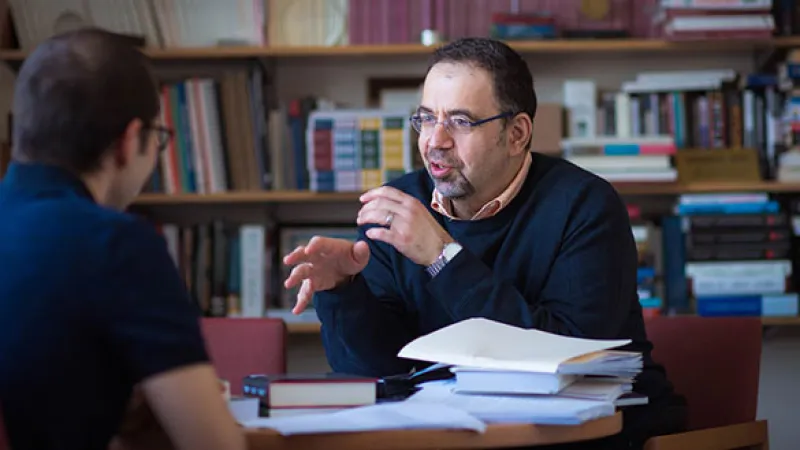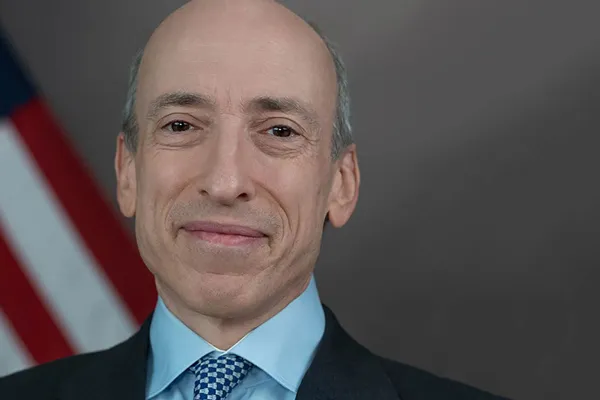Bruce Blythe, for CME Group
AT A GLANCE
- “Why Nations Fail” author discusses the connection between inclusive institutions and economic growth, and why COVID-19 could have long-term effects on state-society relations
- ·MIT Economics Professor Daron Acemoglu is awarded the 2020 CME Group-MSRI Prize
In September 1980, Acemoglu was living in Istanbul and had just turned 13 when the Turkish military launched a coup that overthrew the civilian government. Scenes of soldiers in the streets and a general climate of chaos and fear remain fresh in Acemoglu’s mind. One particular takeaway from that experience has informed Acemoglu’s work ever since: a society requires trustworthy, inclusive institutions if democracy is going work.
“Politics and economics are inseparable,” said Acemoglu, the winner of the 15th CME Group-MSRI Prize in Innovative Quantitative Applications. Political-economic dynamics, “help determine whether democracy will function… and have a major effect on potential growth and prosperity. Inclusive institutions are more likely to have growth, and, most importantly, such inclusive economic institutions can’t exist separately from political institutions.”
Acemoglu, a Professor of Economics at the Massachusetts Institute of Technology, has taken big-picture views and deep-dives into an array of complex subjects, including economic development, inequality, labor economics and the economics of networks. His five books include 2012’s “Why Nations Fail: The Origins of Power, Prosperity, and Poverty,” co-authored with James Robinson.
“We are pleased to recognize Professor Daron Acemoglu,” Leo Melamed, Chairman Emeritus of CME Group and founder of the CME Group-MSRI Prize, said in a statement. “His pioneering work, particularly in big data and networks as they apply to business and economics, has significant applications to our industry.”
COVID Accelerates Social, Political Dynamics
The CME Group-MSRI award, given in partnership with Berkeley, California-based Mathematical Sciences Research Institute, recognizes individuals “who contribute original concepts in mathematical, statistical or computational methods for the study of markets' behavior and global economics” (seven of the past 14 recipients were later awarded the Nobel Prize in Economic Sciences).Acemoglu was honored May 5 in a virtual event hosted by CME Group. The event featured presentations by several other distinguished economists on topics including big data and the intersection of artificial intelligence and economics in business decision-making.
Since the 2008 financial crisis, growing inequality and distrust of institutions have played large roles in shaping the world today, Acemoglu said, and some of the problems detailed in “Why Nations Fail” have grown worse, exacerbated further by the COVID-19 pandemic.
Read more about Daron Acemoglu and past winners of the CME Group-MSRI Prize
In “Why Nations Fail,” Acemoglu and co-author Robinson argue that wealthy countries become so primarily because of “inclusive” political and economic institutions, such as secure private property and unbiased systems of law. In “extractive” countries, ruling elites exclude the majority of people from income distribution and the political decision-making process. Often, countries on either extreme share borders, with North and South Korea and the U.S. and Mexico cited as examples.
Inequality in the U.S. and Europe has been increasing for 40 years, and, more recently, many countries have seen a “backsliding” of democratic norms or breakdowns in social safety nets, he said. Authoritarian rhetoric and political polarization have further eaten into trust in institutions.
“Western societies were suffering from many important problems long before the pandemic,” said Acemoglu, who was born in Istanbul to Armenian parents. COVID-19 “has been a great accelerator for some of these dynamics, both good and bad. It’s going to make this decade much more turbulent in terms of state-society relations.”
Seeking Answers for Rich-Versus-Poor Question
The question of why some countries are poor and others rich “has puzzled social scientists for centuries, but it is only recently that we have the methodological tools to answer such questions,” said Robinson, who, in addition to “Why Nations Fail,” co-authored two other books with Acemoglu.“Daron has been in the forefront of that and has radically re-oriented the profession away from arguments about culture and geography towards those focused on politics and institutions,” Robinson added.
Simon Johnson, Professor of Entrepreneurship at the MIT Sloan School of Management, said Acemoglu has also been ahead of the curve in examining whether “overinvestment” in certain types of technology, such as artificial intelligence, is undermining the middle class.
Johnson described Acemoglu as a clear thinker who’s “equal-opportunity” tough on his and everyone else’s ideas and not shy about grilling presenters and speakers with constructive and friendly questions. After Acemoglu and Johnson worked together at MIT, Johnson, in 2007-08, served as chief economist at the International Monetary Fund.
“Working with Daron was the best possible preparation for that kind of public role, because I’d learned a lot from working with him about deeper underlying issues in economic development,” Johnson said. “And when you’ve persuaded Deron to write a paper with you, then facing down leading finance ministers of the world and taking their difficult questions is a piece of cake.”
Financial Markets’ Key Role Ahead
What’s the best way to respond to a pandemic, based on what we know now? There’s not complete agreement on that question, Acemoglu said, but part of the answer involves having ample state “capacity” for collecting data on the population, testing, distributing vaccines and other critical steps. Executing on these steps goes back to the question of trust, which may vary, depending on the country.“You need trust in state institutions, and you need some guarantee or assurance that the state can take on additional powers and not turn it into a despotic power grab,” Acemoglu said.
As the world emerges from the pandemic, global financial markets are another institution that will play a key role in rebuilding economies and democracies, Acemoglu said, but there, too, trust is paramount.
That trust was tested following the 2008 financial crisis. Federal bailouts of some large banks fed public perceptions that the government was “captured” by financial interests, Acemoglu said, further eroding trust in institutions and creating a strong backlash that reverberates today.
What can be done to prevent, or at least mitigate, another such crisis?
“It comes back to the right regulatory environment for a healthy market economy,” Acemoglu said. “It’s easy to say now, but the best policies would have been those that prevented the crisis in the first place.”
“Finance is a very important part of the modern global economy. It’s very important for global flows of capital and talent,” he added. “The devil is in the details. How the global financial markets work, and what sort of regulatory environment those markets operate in, is going to be very important in the decade ahead. When the next crisis comes, that’s really when you need that trust capital.”
Read more articles like this at OpenMarkets






